
Photo by Sixteen Miles Out
IN MY BOOKS, I often talk about the importance of giving space to someone who seems angry or abandons us for no apparent reason. But I haven’t emphasized enough the importance of also reaching out with an olive branch at God’s appointed time afterward.
Recently my husband and I encountered a disturbing conflict in a business situation. The other party seemed contentious in their dealings and pretty much shut down all communication through their rude and threatening words. We knew we could take legal recourse and considered doing so, but a check in our spirits caused us to hold off from responding or taking any action.
Meanwhile we prayed.
After about three weeks, I felt a nudge in my spirit to reach out with a simple proposal to these people in which all of us could possibly feel satisfied. When I approached my husband about it, he agreed, both of us remembering that when tempers run hot, people sometimes say things they regret. As a result, we held out an olive branch to the other side by texting our proposal to them, not knowing whether they would answer belligerently, not answer at all, threaten us again, or think about it and eventually accept.
Surprisingly, we received a positive answer within 10 minutes after the text was sent. They not only accepted our proposal, but were ready to move forward with it immediately. And they did. The business relationship ended with “thank yous” and “your welcomes” and a peaceful ending to what had appeared to be a disturbing and stressful impasse.
As I thought about this experience with the olive branch, my mind traveled back to when my husband and I were separated. At one point not only had he pulled away from our relationship, but I had as well. We were at an impasse. I saw no hope. But because of my daughter’s upcoming wedding, I wanted to somehow keep things from being unpleasant for her so I went on a fast. During that week with my focus on God, I felt the Lord urging me to call my husband and invite him to help me pick out the food for the reception. The next week, my counselor smiled and called it an “olive branch.”
And that olive branch ended up with my husband and I actually enjoying each other the night we picked out the food for the reception, taking a stroll down a chic little shopping district in Winter Park, and beginning what I have later referred to as a time of “friendship dating.” Our friendship dating eventually lead to the restoration of our marriage.
As my thoughts dwelt on the whole idea of an olive branch, I realized how an olive branch had lead to the restoration of other relationships as well when a schism had developed. The restoration had begun with giving space so each person had a chance to cool down and reflect on negative words and actions, process regrets, and foster hopes. Most importantly of all, it had provided an opportunity for me to listen to God, spend time in His Word, and seek His wisdom.
So for those of you at an impasse in a relationship, I encourage you to think about whether extending an olive branch might bring unexpected rewards. If each of you have had space and time to reflect on the situation, the olive branch might be God’s next step toward reconciliation.
“Wait for the Lord; be strong and take heart and wait for the Lord” Psalm 27:14.
“If it is possible, as far as it depends on you, live at peace with everyone” Psalm: 12:18.
If you need help in knowing when a broken relationship might be helped by giving a time of space, extending an olive branch, or other practical tips for bringing restoration, I encourage you to check out my book, Fighting for Your Marriage while Separated.
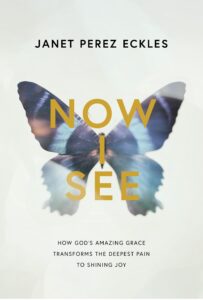 SOME PEOPLE ARE AN INSPIRATION. Not only have they overcome overwhelming challenges in their life, but their face radiates love and joy. Whenever you meet them, the warmth of their graciousness creates a sweet and welcoming encounter. This is Janet Perez Eckles, author of her new book,
SOME PEOPLE ARE AN INSPIRATION. Not only have they overcome overwhelming challenges in their life, but their face radiates love and joy. Whenever you meet them, the warmth of their graciousness creates a sweet and welcoming encounter. This is Janet Perez Eckles, author of her new book, 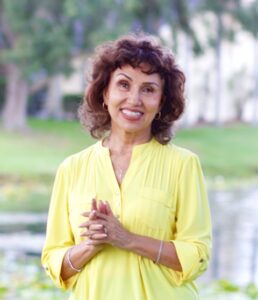
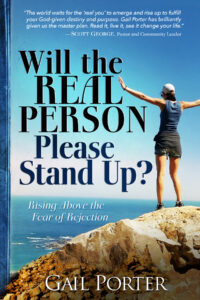 BECAUSE THE PAIN and insecurities we experience in life often affect us in ways beyond our immediate understanding, many of us develop a fear of rejection that can hold us captive and keep us from enjoying meaningful relationships. In her book,
BECAUSE THE PAIN and insecurities we experience in life often affect us in ways beyond our immediate understanding, many of us develop a fear of rejection that can hold us captive and keep us from enjoying meaningful relationships. In her book, 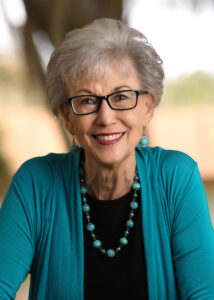 build to protect ourselves from possible rejection. For the first time, I realized that I purposely refrained from sharing much about myself, or my thoughts and ideas, because I feared people wouldn’t like me.
build to protect ourselves from possible rejection. For the first time, I realized that I purposely refrained from sharing much about myself, or my thoughts and ideas, because I feared people wouldn’t like me.
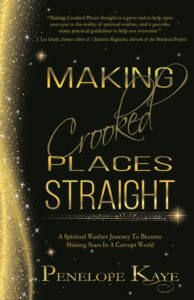 WE LIVE IN a challenging world. Temptations surround us. We struggle with what is right and what is wrong. When things work out differently than what we wanted and expected, we’re confused and overwhelmed. Where does this chaos come from? In her book,
WE LIVE IN a challenging world. Temptations surround us. We struggle with what is right and what is wrong. When things work out differently than what we wanted and expected, we’re confused and overwhelmed. Where does this chaos come from? In her book, 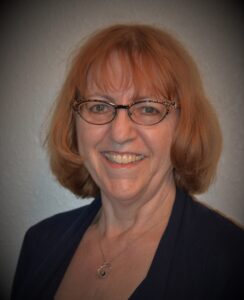
 IF YOU EVER feel invisible, ignored, and overlooked as though you blend in with the wallpaper when you’re with a group of people, the loneliness you feel can be overwhelming. Author Cheri Strange knows this feeling herself and wants to help you rediscover your true value. Her new book,
IF YOU EVER feel invisible, ignored, and overlooked as though you blend in with the wallpaper when you’re with a group of people, the loneliness you feel can be overwhelming. Author Cheri Strange knows this feeling herself and wants to help you rediscover your true value. Her new book,  alone?
alone? PROBLEMS HAPPEN. Often. Sometimes they seem overwhelming. We wake in the night and find ourselves wrestling with nightmarish situations that we just can’t get control over.
PROBLEMS HAPPEN. Often. Sometimes they seem overwhelming. We wake in the night and find ourselves wrestling with nightmarish situations that we just can’t get control over. LIFE HAS A WAY of throwing surprises in our path, and some of them aren’t what we’d hoped for. Life can be challenging. How we face those challenges, however, can make all the difference in what our futures will look like. In Lori Vober’s new book,
LIFE HAS A WAY of throwing surprises in our path, and some of them aren’t what we’d hoped for. Life can be challenging. How we face those challenges, however, can make all the difference in what our futures will look like. In Lori Vober’s new book, 






